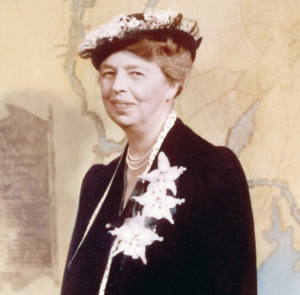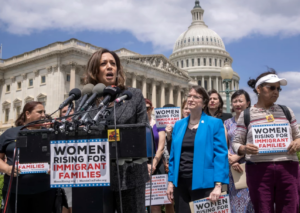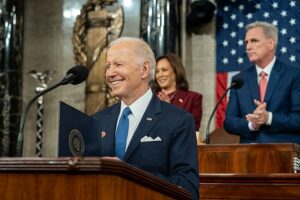COVID-19 Presents Challenges for Religious Expression in the U.S.
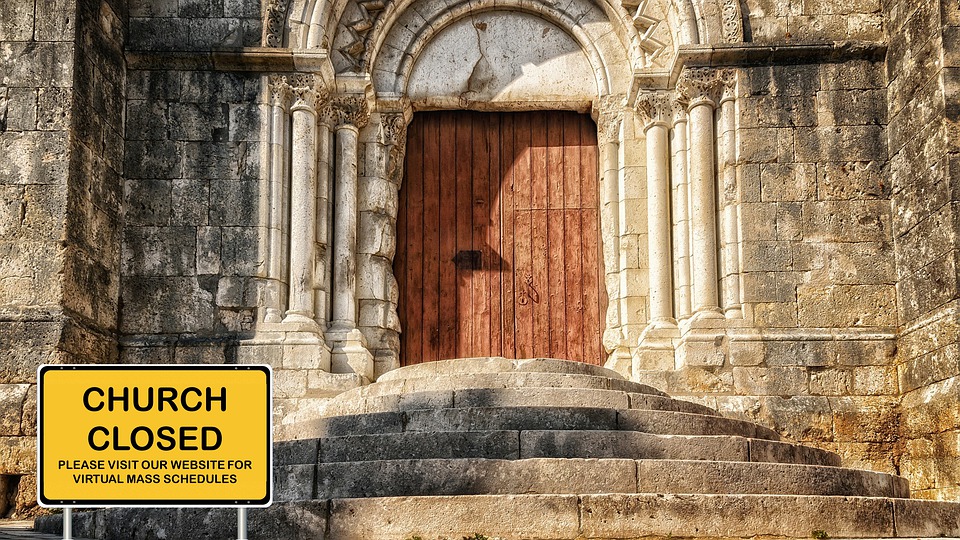

Religious institutions across the U.S. are filing lawsuits against their state and local governments, arguing that the social distancing rules meant to slow the spread of COVID-19 are depriving them of one of their most basic, and most critical, liberties: the right to worship.
A church in Kentucky filed for a temporary restraining order to hold drive-in Easter services. In Florida, the pastor of a megachurch was arrested for holding a large indoor worship service in defiance of government orders one day before another megachurch pastor in Louisiana was charged with six counts of violating public health orders. In Virginia, a pastor was given criminal citations for holding a church service that 16 people attended. Each of these cases, along with others in NH, CO, TN, MS, NM, MI, NY, KS, and Texas, have led to state COVID-19 restrictions being challenged in front of a court.
A recent report from the Pew Research Center shows that only ten out of 50 states have completely banned religious gatherings. The majority of states have opted for a more balanced approach: allowing religious gatherings to occur as long as the institutions agree to abide by certain rules. Still, many religious leaders, institutions and parishioners are looking at this as a threat to religious freedom.
It is difficult to claim that the government didn’t have a compelling reason for issuing the stay-at-home orders. Slowing the spread of COVID and protecting the general public from serious illness and death is a goal widely recognized and agreed upon. However, church leaders and parishioners contend that there are other, less strict ways of regulating religious practices—for example, requiring the churches to implement social distancing measures.
Many of these lawsuits have also claimed that the orders in place discriminate against houses of worship. If drugstores, supermarkets, liquor stores, and hardware stores are allowed to stay open, then churches should also be permitted to hold services, as long as they follow the CDC’s recommended guidelines for social distancing. Pastors argue that they have taken precautions such as thoroughly cleaning the churches, providing hand sanitizer, asking attendees to check their temperatures before coming to church, requiring people to remain at least six feet apart, and not passing around offering plates or shaking hands.
In mid-April, two Kansas churches, one attempting to hold drive-in services and one that held an in-person gathering on Easter Sunday, filed suit against Kansas governor Laura Kelly. They said that while her ban on gatherings “carves out broad exemptions for 26 types of secular activities” it specifically prohibited churches from hosting gatherings of more than ten people. A judge later overturned Kelly’s ban, agreeing that it unfairly singled out churches.
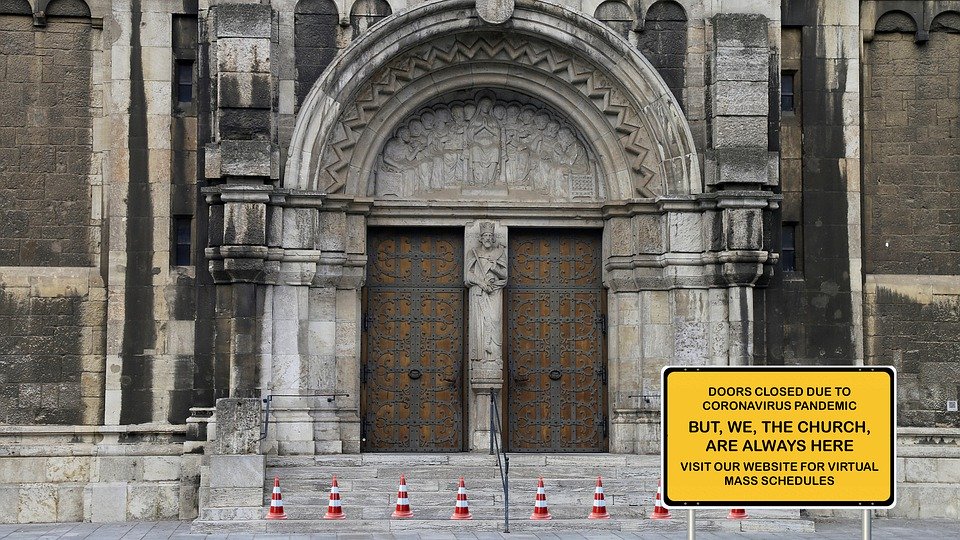
In Kentucky, a judge approved a temporary restraining order for On Fire Christian Center in Louisville to hold drive-in Easter services. In the court memorandum, the judge pointed out that the mayor was still allowing drive-through restaurants and liquor stores to operate. “If beer is ‘essential’” he wrote, “then so is Easter.”
These religious freedom claims also appear to be largely supported by the federal government. The Department of Justice wrote a statement of interest for a church in Mississippi in which parishioners attending parking lot services were fined $500 each for ignoring social distancing laws. The Department of Justice (DOJ) recently filed another statement of interest supporting a church in Virginia.
Some of the plaintiffs interpret certain Biblical verses as a mandate to gather in person, and especially in extreme circumstances, such as during a pandemic. However, some pastors have countered that the Bible’s directive that Christians love their neighbor means that Christians have a duty to follow the necessary precautions to stop the virus from spreading—including staying away from religious services.
The outcomes of these cases have varied depending on the state in question. In a recent AP news story, the reporter found that suits that concentrate on drive through church services rather than in-person services have been the most successful. In California, for example, a court ruled in mid-April to allow state-wide drive-through services, but denied a temporary restraining order to three churches who wanted to be able to gather in person. New Mexico, Maine and New Hampshire also upheld the state restrictions prohibiting mass gatherings. As states begin to reopen, however, it’s possible that more churches will be allowed to resume even in-person services.
COVID-19 and Public Health
There is a strong government precedent for restricting religious freedom in case of a clear threat to public health. Courts in the U.S. have repeatedly struck down requests for religious exemptions to mandatory vaccinations for children. Freedom of religion or conscience, one court declared, does not extend to endangering the lives of other people.
Public health mandates, such as requiring physical exams, testing for venereal disease before marriage and requiring children with contagious illnesses to have a doctor’s certificate before returning to school, have also been upheld by U.S. courts despite religious freedom suits.
This is also not the first time that the government has limited religious freedom in response to a pandemic. During the 1918 Spanish flu, state governments imposed restrictions on businesses, schools and churches similar to the ones in place for COVID-19.
Another complication is the fact that multiple cases of COVID-19, and sometimes large clusters of cases, have been linked to religious gatherings. Cases have been traced to a choir practice in Washington State and funerals in Georgia. Three of Kansas’ eleven clusters of COVID are connected to churches. This seems to have caused several governors to be particularly cautious about allowing religious services. The WHO has issued regulations specifically for religious services, which suggest limiting in-person contact as much as possible.
Religious Institutions: Non-Essential Service or a Public Need?
Many of the lawsuits have claimed that religious gatherings should be classified as essential services, on par with grocery stores and pharmacies. While these businesses fill material needs, the argument goes, houses of worship fulfill an equally pressing spiritual need.
Likening a “spiritual need” to a material one, like food or work, can be a difficult comparison to make. Visiting professor at UCLA Lawrence Sager, in an interview with the Los Angeles Times argued that, unlike with food or medicine, religious worship can be performed completely online. Consequently, he said, churches that insist on meeting in person have “a very weak case.”
But this understanding of the situation may be too narrow. Several of the churches who have filed suit pointed out that their congregations do not have the resources to access online services. Lighthouse Church in Virginia said that they serve individuals such as recovering drug addicts and sex workers, people who would not have access to the internet.
Some of the plaintiffs interpret certain Biblical verses as a mandate to gather in person, and especially in extreme circumstances, such as during a pandemic. However, some pastors have countered that the Bible’s directive that Christians love their neighbor means that Christians have a duty to follow the necessary precautions to stop the virus from spreading—including staying away from religious services.
Church leaders and worshippers who support the bans have another reason for wanting churches to comply with government regulations. They fear that if people see a few outspoken Christians refusing to follow social distancing protocols, it will reflect badly on all worshippers.
In reality, very few Christians have a problem with the stay-at-home orders. The American Enterprise Institute found that between 70 and 80 percent of the worshippers they surveyed agreed with the measures taken to stop the spread of COVID-19. Most agree that the people making noise have up until now represented a small, albeit vocal, minority. Yet as the country begins to open up, religious institutions will have to strike a balance between concern for people’s health and the desire to gather as a community of faith.
Emilia Otte is graduating with a master’s in Journalism and European and Mediterranean Studies at NYU. She is an editor with the New York Transatlantic, a blog that covers European events in New York City. She has written pieces on U.S. immigration, the Catholic Church, migration and domestic violence in Italy.


